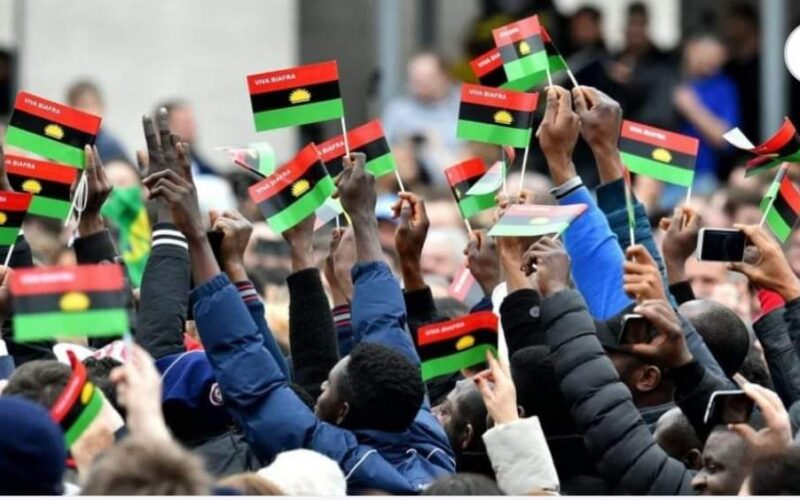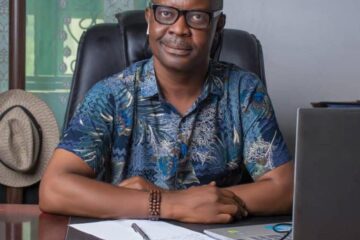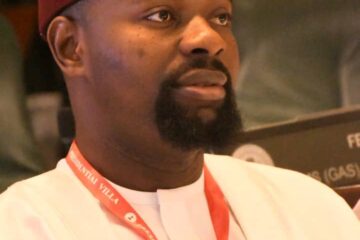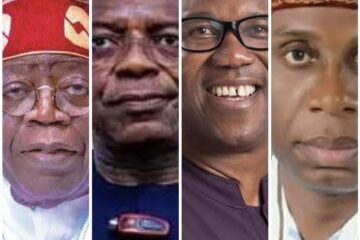A Federal High Court in Abuja has been asked to compel the Senate President and Speaker of the House of Representatives to hasten the exit of the South-Eastern region out of Nigeria before concluding on-going amendment to the country’s constitution.
The request for court order to compel hastening of South East exit from Nigeria formed one of the three prayers sought in a suit marked, FHC/ABJ/ CS/538/2021, instituted by a group of elders and politicians from Kano State led by Nastura Ashir Shariff, Balarabe Rufa’I, Abdul-Aziz Sulaiman and Aminu Adam.
In their suit, they averred in a supporting affidavit that their action was informed by the need to stem the tide of violence and destruction being allegedly occasioned by the agitation for secession, championed by the Nnamdi Kanu-led Indigenous People of Biafra (IPOB).
Plaintiffs claimed that they do not want a repeat of the 1967 to 1970 civil war that cost the nation many innocent lives and property worth billions of naira.
Listed as defendants in the suit are the Attorney General of the Federation (AGF), the Senate President, the Speaker of the House of Representatives and the National Assembly.
The plaintiffs prayed the court for the following reliefs:
“A declaration that, by the combined effect of the provisions of section 4 of the 1999 constitution of the Federal Republic of Nigeria (as amended), and Articles 1, 2, and 20(1) of the African Charter on Human and Peoples’ Rights (Ratification and Enforcement) Act 2004, the 4th defendant (the National Assembly) is empowered to set in motion a framework for a referendum to allow the South-Eastern region of the Federal Republic of Nigeria to decide on their bid for self-determination.
“A declaration that in view of the provisions of Articles 1, 2, 4, 14 and 20(1) of the African Charter on Human and Peoples’ Rights (Ratification and Enforcement) Act 2004, the 2nd and 3rd defendants (the Senate President and House of Reps Speaker) have the power to call for a joint session of both chambers of the 4th defendant to deliberate on the agitation for self-determination by the South-Eastern states of the Federal Republic of Nigeria.
“An order directing the 2nd, 3rd and 4th defendants to provide a framework that will pave way for the self-determination of the South-Eastern states so as to leave the geographical entity called Nigeria before any further step is taken to further amend the constitution of the Federal Republic of Nigeria.”
The first plaintiff in the suit, Shariff, stated in the supporting affidavit he deposed to that IPOB, founded by Nnamdi Kanu has been agitating for self-determination by way of creation of the independent state of Biafra away from the Federal Republic of Nigeria.
The Chief Judge of the Federal High Court, Justice John Tsoho, has assigned the case to Justice Inyang Eden Ekwo and has been fixed for November 1. 2021 for hearing.
Secession Not Solution To Nigeria’s Current Challenges— Ganduje
Meanwhile, Gov. Abdullahi Ganduje of Kano State has said secession is not the way out of the current challenges afflicting the country.
Ganduje said this at the 2nd quarterly public lecture series of the All Progressives Congress (APC) Press Corps on Thursday in Abuja.
He recommended dialogue as a panacea that should be embraced by secessionists to address perceived grievances.
The theme of the lecture, which was attended by APC chieftains, members of State Executive Councils and legislators, was, ‘Sustaining a United and Indivisible Nigeria: A Myth or Reality’.
“Let me repeat here that Nigeria is a united and indivisible country; our constitution has taken care of that, I don’t see secession as the way out of the current challenges afflicting the nation.
“Instead, advocates of secession should have a change of heart and I recommend dialogue as a crucial option for addressing their problems.
“Besides, there is a National Assembly where some of the grievances can be addressed,” Ganduje said.
According to him, dialogue is a far better alternative that costs less than consequences of the wedge that had been erected to frustrate more flow of conversations between government and citizens to arrive at a national consensus.
He said that sooner we face issues such as the huge infrastructure deficit, our shrinking oil revenue and looming food insecurity as a consequence of insecurity in our agriculture zones, the better for us all.
Senator Rochas Okorocha, one of the discussants of the paper, opined that if the country will address glaring injustices and inequalities and hunger, unity is attainable.
The former governor of Imo State declared categorically that the Igbo who bear the brunt of Nigeria’s disunity owing to his vast investment across the country, is not asking for any special favour other than a level playing field.
Okorocha argued that the amalgamation of the Southern and Northern protectorates by the British in 1914 was a business venture, adding that until the nationalities come together to discuss their existence and create a myth therefrom, the country will continue to wobble.
“Our amalgamation without the people coming together to discuss and how they can respect each other have been a major issue and secondly, we were not able to create a myth. So we need more of a myth than what we call reality.
“We need to create a myth that can make us feel together as one indivisible people but not that this myth is not created and political parties tend to divide us.
“What we must do as a people is to address the issue of injustice as a nation, starting from the stomach injustice which we call hunger.
“For instance, I don’t have any enemy from the North or South West. The biggest political problem I have recently is from the South East, from my state. The injustice of stomach and other injustices must be addressed.”




